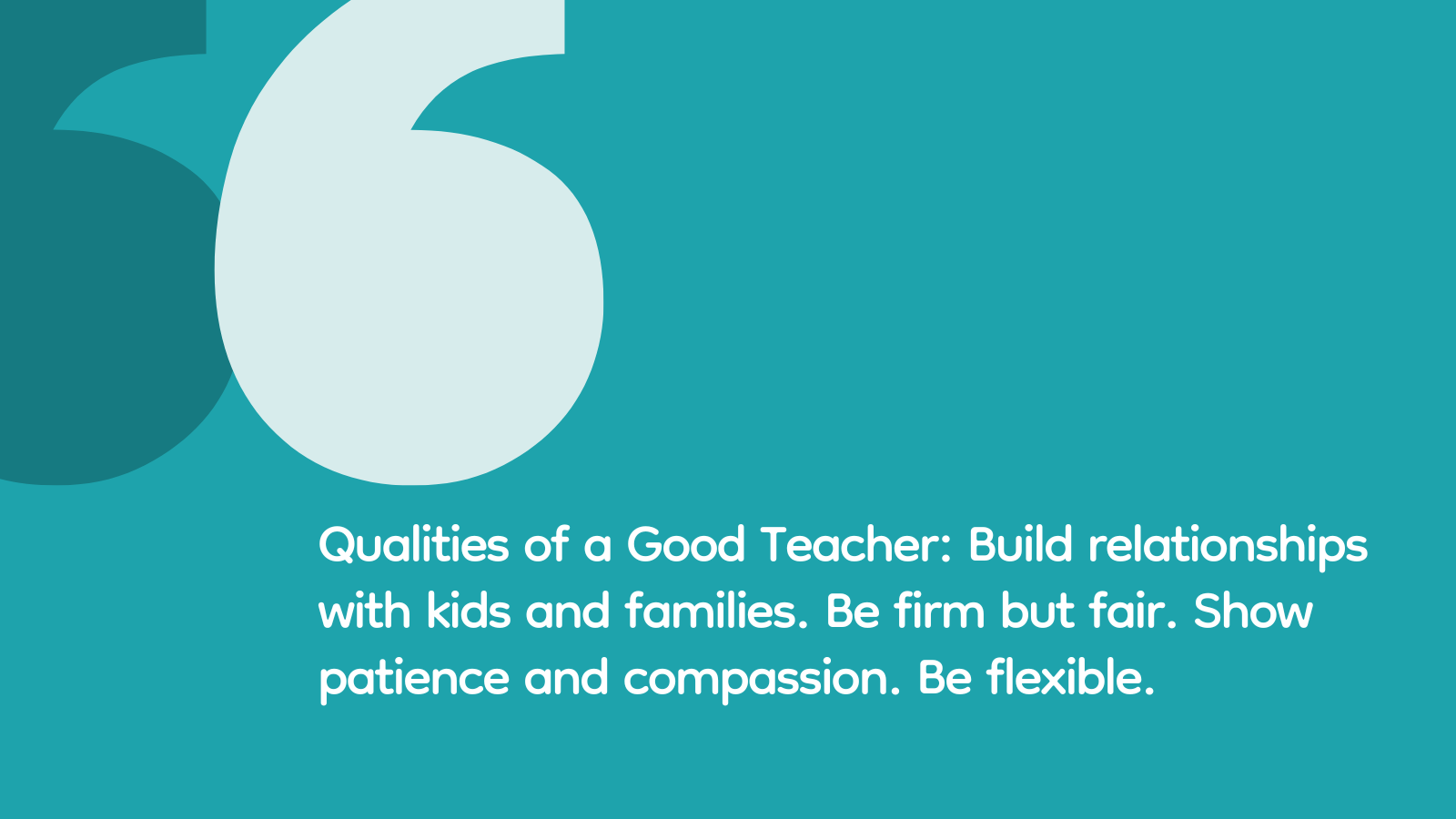It’s a standard teacher interview question: “What do you think is the most important quality of a good teacher?” While everyone has a different answer, there are some that come up more often than others. We asked a group of experienced educators and administrators to share their thoughts on the key qualities of a good teacher. Here’s what they had to say.
1. Patience
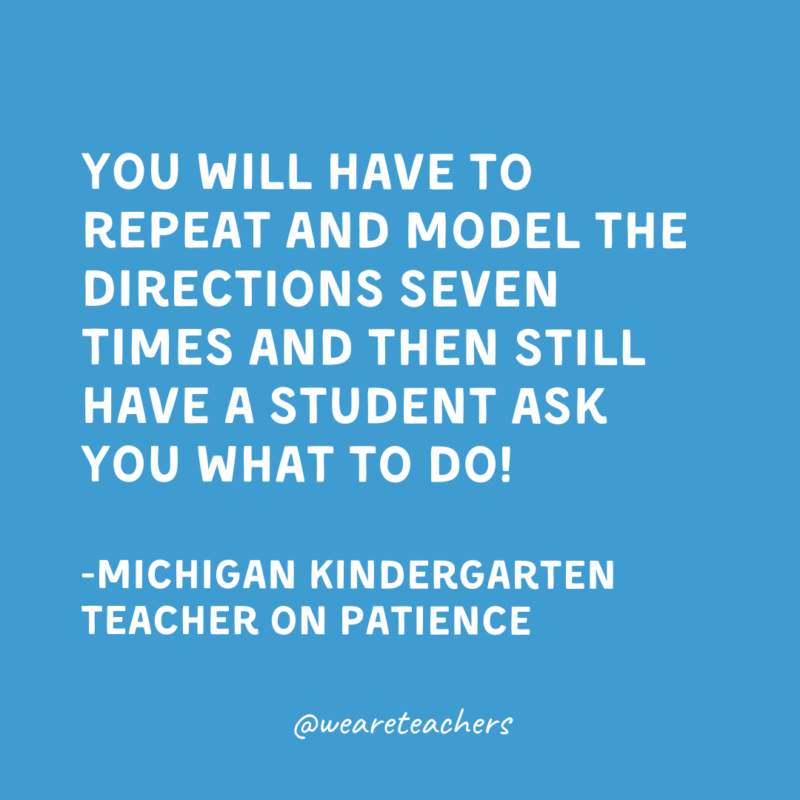
This was far and away the most commonly mentioned characteristic by educators in our survey. “Patience can be used in virtually every situation,” says high school ELA teacher Ann Cox. “If a teacher is able to remain calm, consider others’ point of view, and think through scenarios, they will be able to navigate just about anything that comes their way.”
She continues: “Patience helps teachers not to react in the moment when students are off task, disrespectful, etc. It’s also helpful when dealing with angry parents so you don’t say or do something you might regret later. And patience is definitely needed when sitting through meetings and professional development sessions!”
For ELA teacher Kenly CG, patience means “paying attention to each student’s needs and showing that you care about your students’ learning.” UK special school teacher Sarah Brown also advises “remaining calm, listening and observing students’ needs, repeating instructions, and modelling again when necessary.”
Learn more: 7 Ways To Cultivate Patience at Calm
2. Empathy and Compassion
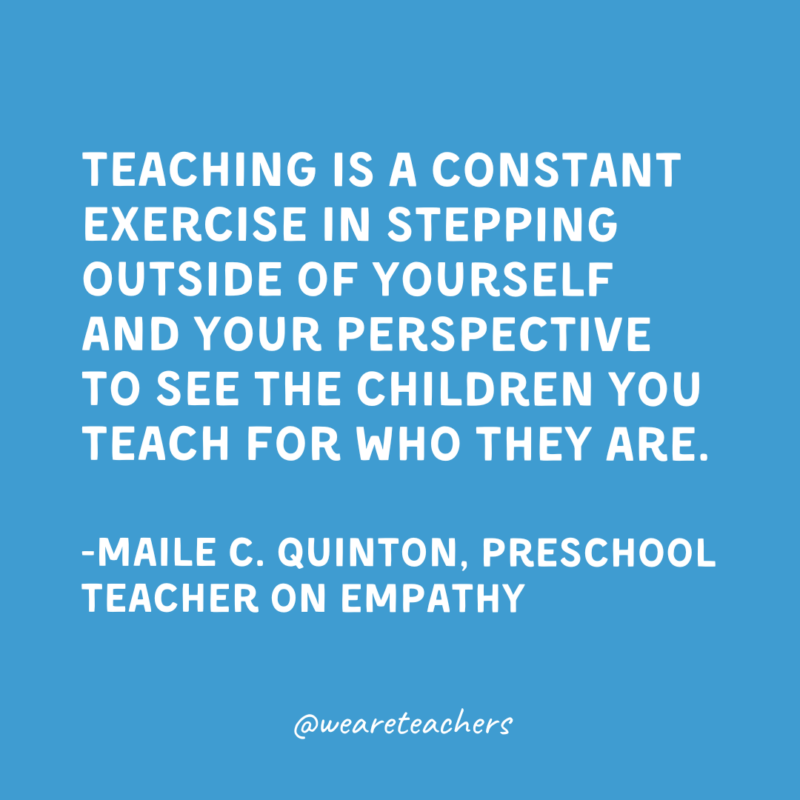
These two traits were a close second behind patience when we asked about the qualities of a good teacher. “They have to know you care before they can learn from you,” explains middle school teacher Samantha Wheeler. As a special ed teacher from New York notes: “You have to teach the child before you can teach the curriculum.”
“Empathy is a constant exercise in stepping outside of yourself and your perspective to see the children you teach for who they are,” notes Indiana preschool teacher Maile C. Quinton. “Contact talks. Get down on the same level as a child, listen to what they say, and emphasize their shared feelings by validating them. Don’t try to silver lining everything—you can validate a situation, a moment, an emotion without condoning a behavior or a problem. Empathy isn’t sympathy.”
Learn more: Cultivating Empathy at American Psychological Association
3. Flexibility and Adaptability
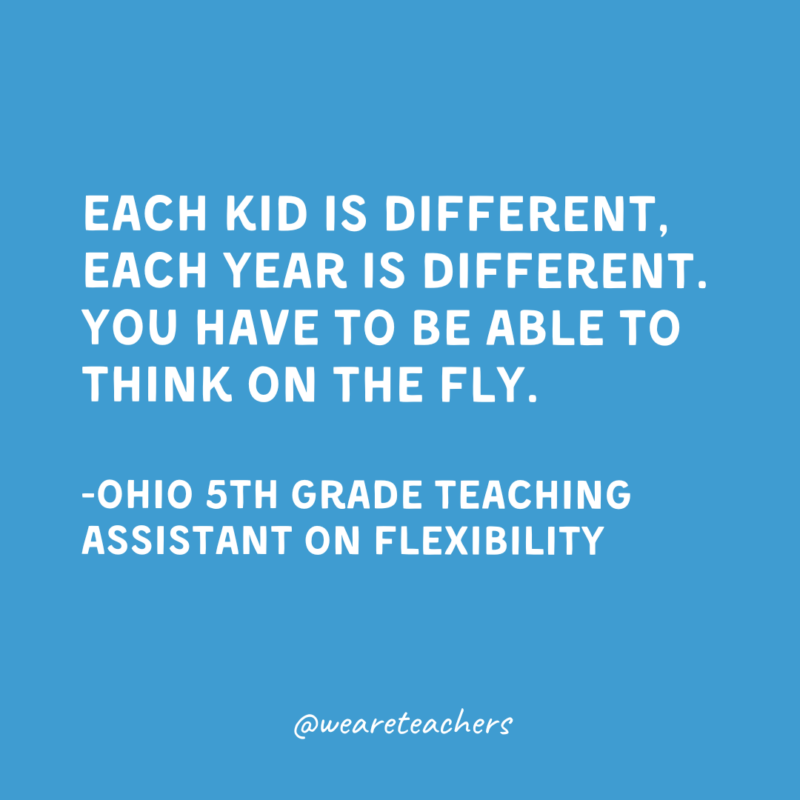
Being open-minded to change is critical in this field. So many of the educators we surveyed agree with this North Carolina ESL teacher: “There is nothing constant in teaching. Good teachers have to be able to adapt to the changing needs of students, to new administrators, new curricula, new colleagues, and new technology.”
“With so many different needs from students and parents, teachers need to be flexible to accommodate and meet students where they are at,” says elementary school counselor Lisa K, while high school English teacher Nicole P. adds, “There are often times where you need to think on your feet, so being flexible is important to go with the flow in different situations.”
Elementary special ed teacher Brianna Vuori sums it up like this: “We can only begin to predict what the future will hold and with that what we need to prepare students for, so adaptability is critical to being able to survive and thrive in this ever-changing profession.”
Learn more: Teachers, To Succeed, It’s Important To Be Flexible at EdWeek
4. Passion
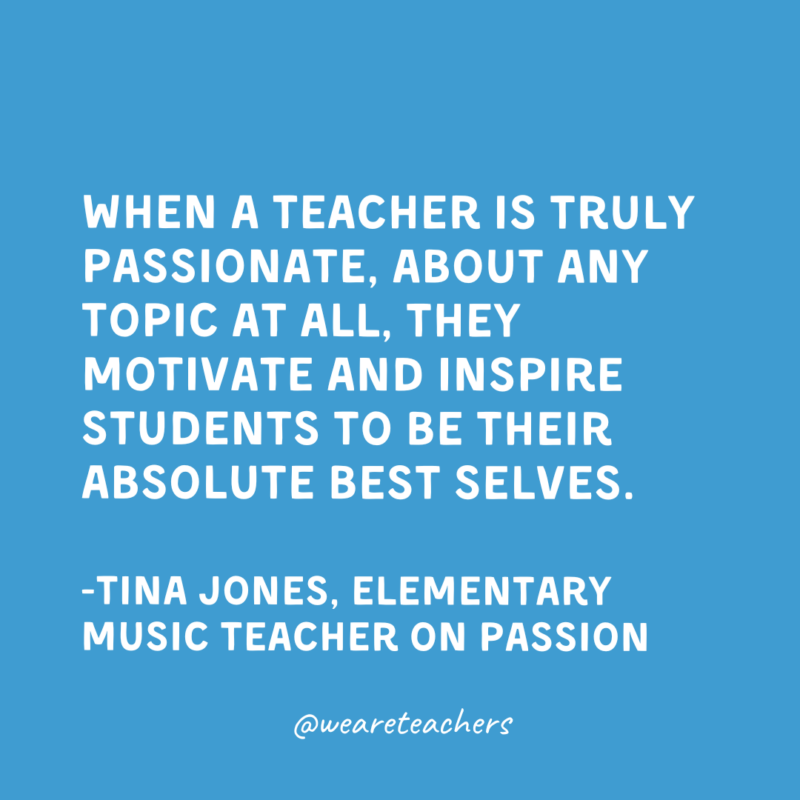
Teaching can be a tough gig, and you’ll need to be dedicated and passionate in order to thrive. “Passion is what drives us forward and what sees us through rough times,” emphasizes ELS department head Katerina T. “It is the driving force behind every lesson plan or decision we make and what lies at the foundation of life-changing relationships with our students.”
“Teachers that have passion will always find a way to meet the demands of the job,” says Florida teacher Jamie Cabaniss. “Teachers can lean on their passions when feeling frustrated and burnt out. Passions are what reignite us to get back in the classroom to teach our hearts out.”
Preschool teacher Christina H. couldn’t agree more. “You have to have a love and passion for what you are doing,” she declares. “Teaching isn’t just ‘teaching.’ It is also being a second mom (or dad), a counselor, a referee, a nurse, and so much more. To wear these many hats, you need to love what you are doing. You also need to love your students to help them succeed. Loving them on their best and worst days is what will make you successful.”
Learn more: 5 Ways Educators Can Grow and Sustain a Passion for Teaching at NSHSS
5. Kindness
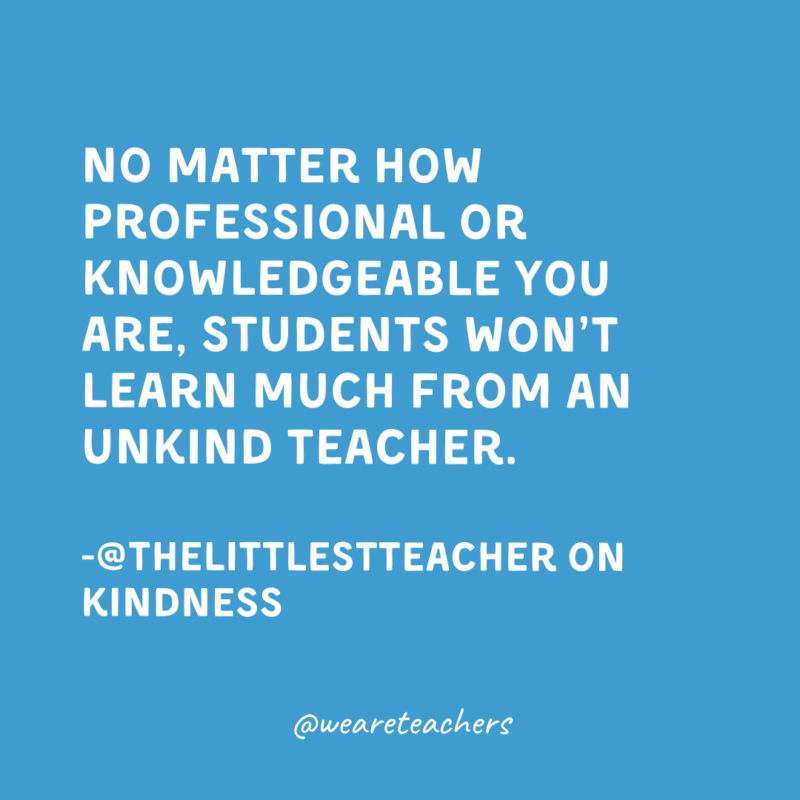
Over and over again, educators emphasized kindness as one of the most important qualities of a good teacher. “We are in the business of teaching human beings. We must teach them to be good people,” stresses Adam Peterson, Illinois music teacher and tutor.
Tina Jones agrees: “Teachers need to be kind, caring, compassionate and understanding. In our world today, with kids getting so much information and misinformation via social media, children need examples of those qualities more than ever.”
Learn more: The Case for Professional Kindness in Teaching at Teacher magazine
6. Collaboration
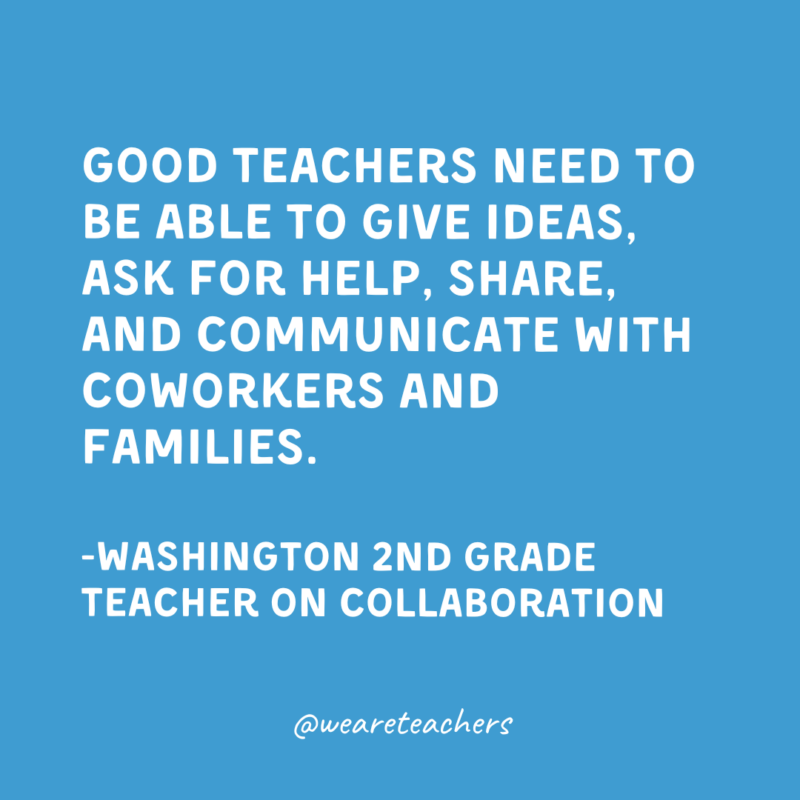
“Good teachers need to be able to give ideas, ask for help, share, and communicate with coworkers and families,” advises one Washington second grade teacher. “Be able to take suggestions, offer help, and not take things personally.”
Teachers regularly have to work collaboratively, and not just with their fellow colleagues and administrators. Developing strong, collaborative relationships with parents and families is vital. To succeed in this field, you need to learn to work well as part of a team.
Learn more: The Importance of Teacher Collaboration at American University School of Education
7. Professionalism
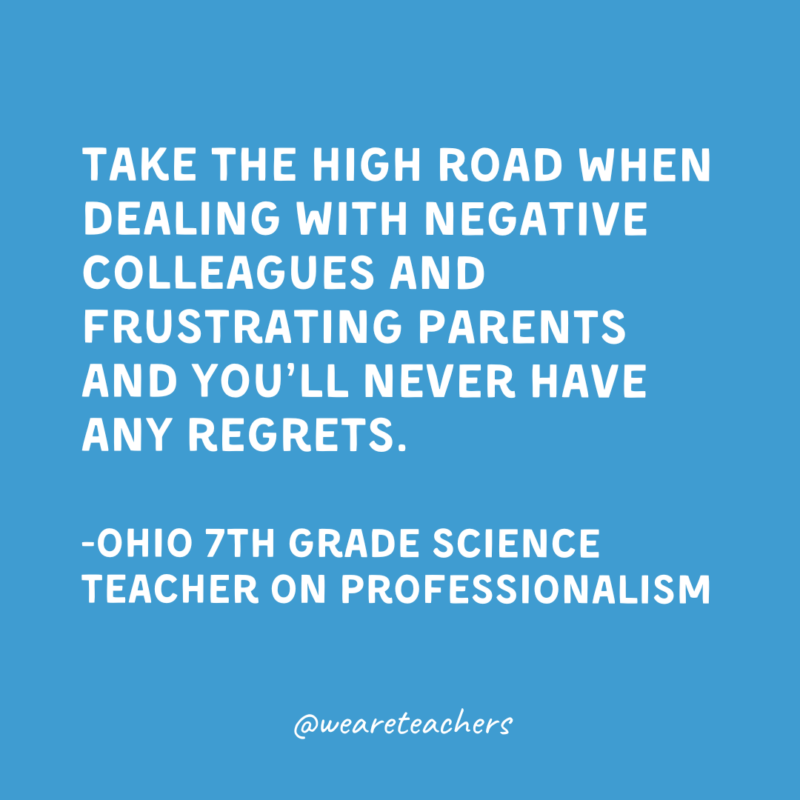
It probably feels like professionalism should be a given in any job, but it’s one of the most important qualities of a good teacher because you need to gain and maintain the respect of students, families, and administration. “Some days are going to be frustrating, discouraging, and stressful,” warns an Ohio 7th grade science teacher, “but you need to remain professional by staying calm and encouraging and being a good mentor for your students.”
Learn more: The Five P’s of Professionalism in Teaching at Grand Canyon University
8. Sense of Humor
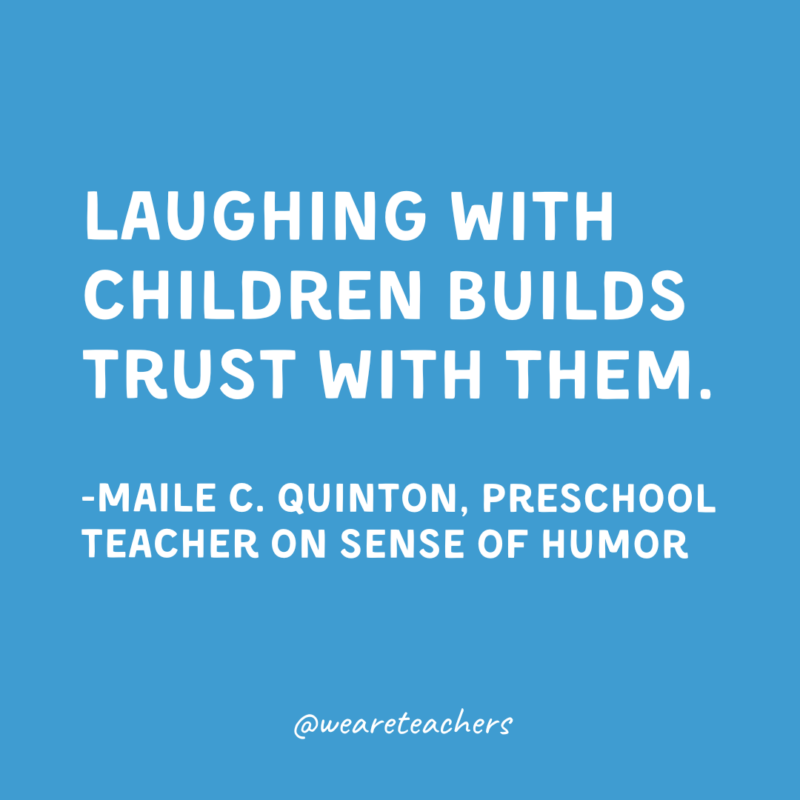
There’s no doubt about it, teachers do best when they have a sense of humor. “Laughing at yourself is a great relief, and laughing with children builds trust with them,” says Maile C. Quinton. Find ways to bring humor into your classroom, and you’ll find that students relax and learn a little more easily. (Plus, it’s much easier to deal with the small daily annoyances of teaching when you learn to laugh them off!)
Learn more: Engaging Students With Humor at Association for Psychological Science
9. Open-Mindedness
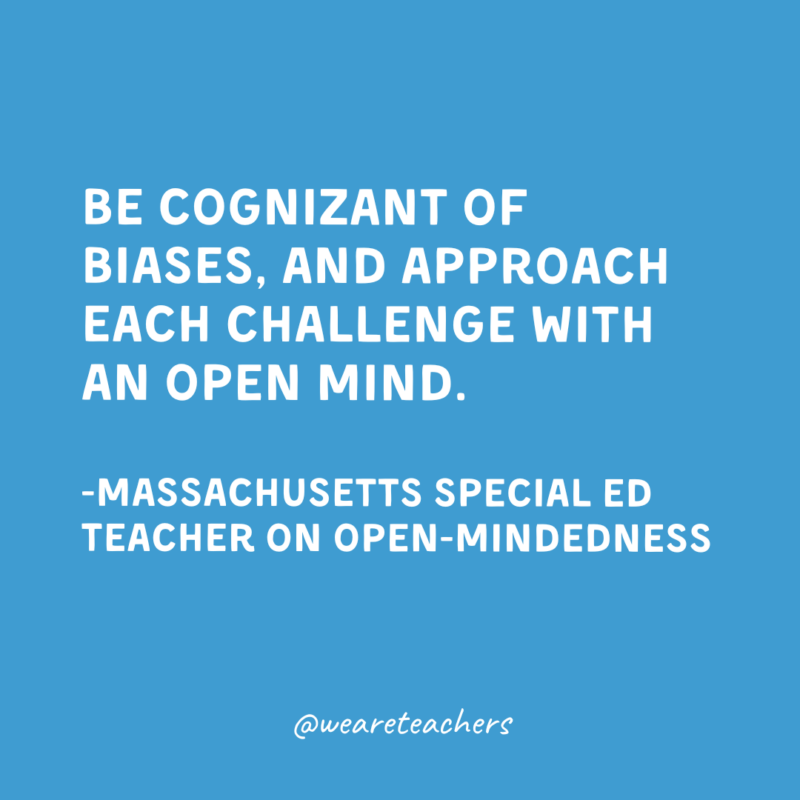
“Be open to learning from more (and even less) experienced teachers, and open to trying out new teaching and classroom management methods,” recommends middle school ELA teacher Abigail Perry.
“We are building relationships with a diverse student population,” notes Cheryl Rizzo, a middle school ELA teacher. “This can be a source of stress or create divide. However, with an open mind, it can create new opportunities or a chance to grow. Teachers are open-minded when they allow students to have a voice and take an active part in their education.”
Part of being open-minded means demonstrating a willingness to grow and a dedication to growth mindset. According to a literacy coach from North Carolina: “This job requires constant reflection, learning, and growth.”
Learn more: How To Be Open-Minded and Why It Matters at Very Well Mind
10. Resilience
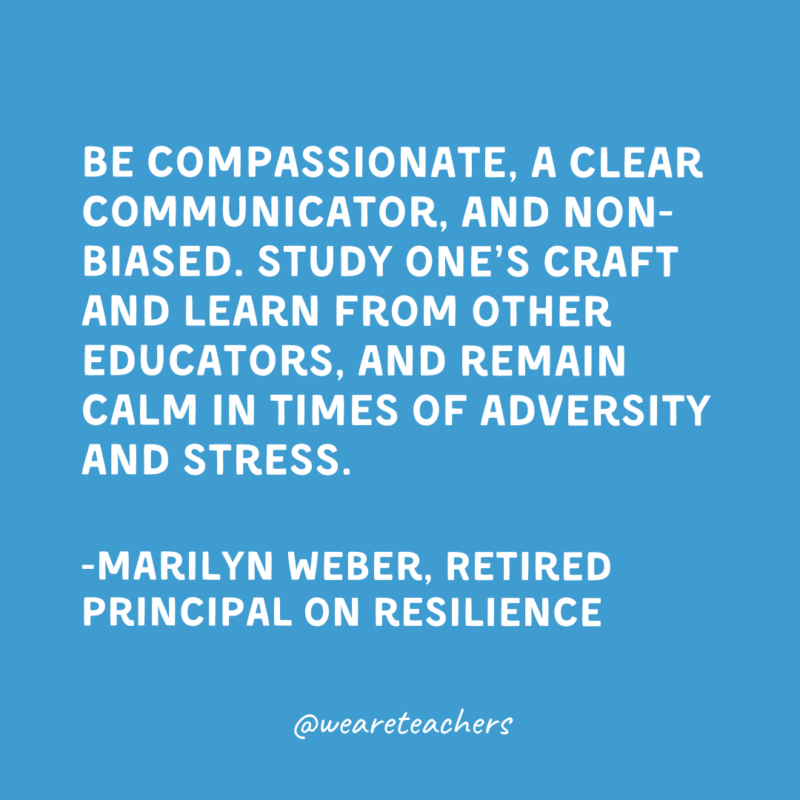
Marilyn Weber, a retired principal from Massachusetts, names this as the quality she looked for in a good teacher. “In order to navigate the world of education with all its related constituencies and responsibilities, an educator needs to be knowledgeable, flexible, an impeccable communicator, and should be able to withstand all the highs and lows of what comes their way and needs to be accomplished,” she states. She added that educators must be able to “do so without allowing any of that to shake their confidence and resolve in order to do what’s best for their students.”
That’s a tall order! Fortunately, Andrea Perry, a certified coach for educator well-being, has some advice. “Develop emotional intelligence. It’s critical for keeping our calm and being proactive, not reactive. This supports the teacher not only in serving their students well but also helps them remain joyfully in the profession as well.”
Learn more: How To Be Resilient at Work at Positive Psychology
More Qualities of a Good Teacher To Consider
These qualities of a good teacher didn’t make the top 10, but they’re definitely worthwhile attributes for every educator to cultivate:
- Inclusive mindset: “There is such a huge stigma against disabilities and it is often hushed away, which creates shame. All children are general education first and receive special education services second. Build a classroom community with respect by explaining differences to students and celebrating everyone’s strengths. True inclusivity helps all students grow, not just the students in a special education classroom. True inclusivity should help you as a teacher grow.” —Katie M., Functional Life Skills Teacher
- Love for all children: “A good teacher must truly like kids, even the naughty ones. Too often teachers only seem to like the ‘good’ kids or the ones from ‘good’ families. They attribute the student’s behavior to something personal or bad about them. Instead, those are the kids in whom we need to diligently look for the good.” —Kathryn Roe, retired educator and administrator
- Love of learning
- Problem-solving skills
- Curiosity
- Courage
- Hopefulness
- Imagination
- Reliability
- Knowledge of content and pedagogy
- High expectations
What do you feel are the most important qualities of a good teacher? Come share your thoughts in the We Are Teachers HELPLINE group on Facebook.
Plus, The Complete Guide to Becoming a Teacher, From Choosing a College to Landing a Job.

